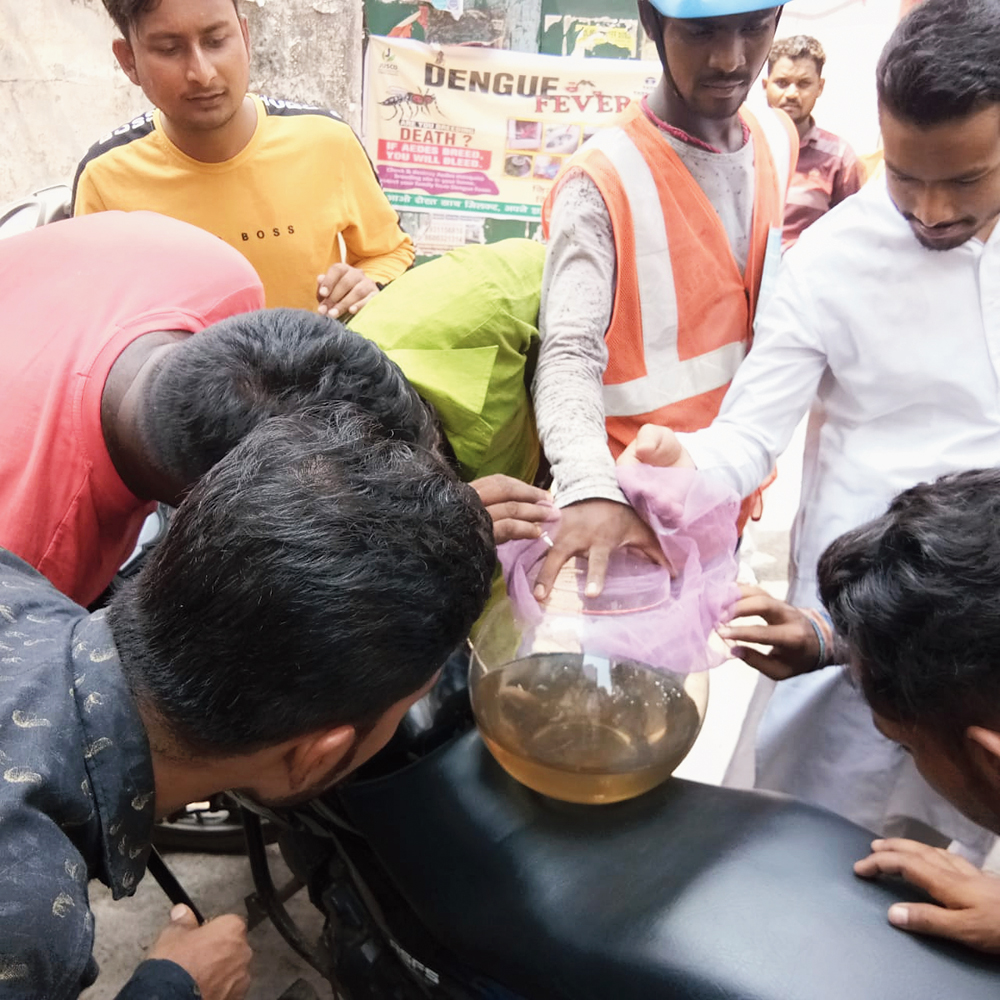The state health department has decided to team up with civic bodies across Jharkhand to launch a door-to-door surveillance and prosecution programme to prevent the spread of vector-borne diseases like dengue from July 1.
State entomologist Sagya Singh explained that since dengue virus was spread by the Aaedes aegypti mosquito that breeds in stagnant water, the idea was to ensure there was no water accumulation points in households.
“If we detect larvae in a household for the first time, the owner will be issued a notice apart from advisories on preventing larvae breeding points. If larvae is detected a second time during door-to-door surveillance, we will levy fines of anything between Rs 100 and Rs 5,000, depending on size of the house and number of larvae detected,” Singh said.
He, however, admitted that the state health department found it difficult to levy fines and prosecute violators due to manpower shortage. “We will, therefore, seek the help of municipal bodies in enforcing fines during door-to-door surveillance while our team would search for Aedes aegypti larvae in suspected spots,” Singh added.
Over the years, dengue positive cases have spiked across the Jharkhand during this time of the year. Last year, there were over 360 dengue cases in capital Ranchi with two fatalities although the district administration denied the deaths were due to the dengue virus.
In 2017, Jamshedpur and its outskirts recorded as many as 556 dengue cases with four casualties. In 2018, the number of cases came down to 69, largely due to a massive awareness campaign pursued by local civic authorities and Tata Steel utilities firm Jusco.
On Monday, three patients tested positive for dengue and one for chikungunya in the steel city.
“We had sent blood samples for dengue testing at the MGM microbiology unit. Three samples tested positive. While a resident of Sonari has been admitted to a private nursing home, two patients, one each from Baridih and Potka, have been admitted to Tata Main Hospital,” said the district surveillance officer, Dr Sahir Pall.
He, however, claimed they were confident of reducing the number of dengue positive cases as Jusco had already launched an awareness and surveillance programme in Tata command areas. “With stepped up activities during monsoon from July onwards, we will try to reduce potential larvae breeding points,” he added.
Jusco spokesperson Sukanya Das said they had started their dengue control programme in April.
“We have conducted awareness programmes in 37 schools and over 40 crowded locations like markets and religious places. We have conducted anti-larval measures at over 1,500 abandoned quarters and searched over 80,000 houses as a part of our dengue surveillance measures,” she said.
This year, Jusco has also resorted to cold fogging. “We will step up efforts during monsoon and continue dengue control exercises till early October,” Das said.











